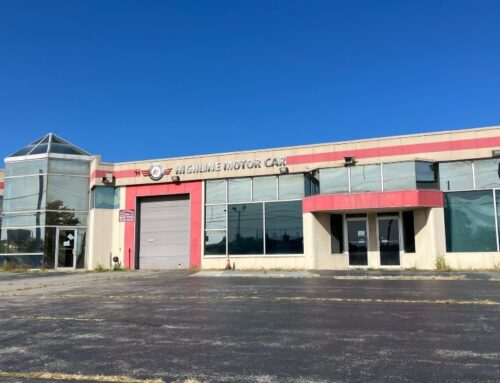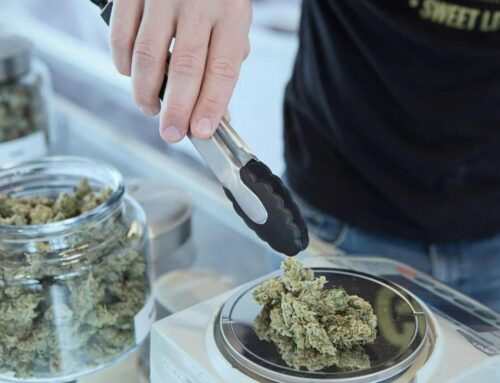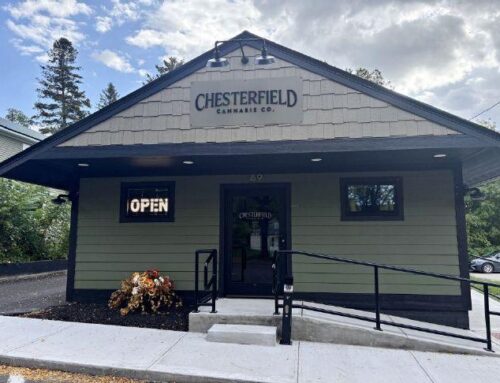Smoke and mirrors in cannabis zoning
September 30, 2025
In New Orleans, marijuana dispensaries — like the one opening soon in our community — can be granted a permit without any neighborhood notice. And in Louisiana, unlike other neighboring states, dispensaries can open up next to a library or a school or a daycare.
NOLA Cannabis Co. is preparing to open the first medical marijuana dispensary at 1407 S. Carrollton Ave., in the Historic Urban Neighborhood of Carrollton, where we both live. It will be operated and supplied by Good Day Farm Louisiana, the largest grower of medical marijuana in the state.
Good Day Farm is headed by John Davis, whose wife is a legislator. The primary investor for NOLA Cannabis is ‘Boysie’ Bollinger, who is also the primary shareholder in Good Day Farm, which produces 70% of the marijuana grown in Louisiana.

We have grave quality-of-life concerns about the soon-to-open Carrollton dispensary, which stands right next to the Nix Library and within a block of an elementary school and a church. Everything else on that side of Carrollton Avenue is residential.
This location would not be possible in neighboring states Arkansas, Mississippi and Missouri, where Good Day Farm also grows for and operates marijuana dispensaries. Legislators in those states required that dispensaries maintain a distance of between 1,000 to 1,800 feet from schools, daycare centers and churches.
Louisiana’s legislature has not passed any similar laws. So it’s up to our City Council to set boundaries.

Let us say, off the bat, that we do not object to medical marijuana or to a dispensary – or to the adult use of marijuana. We both have family members who have greatly benefitted from medical marijuana. This is not a moral argument. It’s about city zoning rules and permits that are awarded to dispensaries in a way that lumps them with ordinary retail shops, without taking the neighborhood or its streetscapes into consideration.
Current zoning rules allowed NOLA Cannabis Co. to obtain a permit for a medical marijuana dispensary in this location, without a single hearing or any community input. It’s all been done very quickly and very quietly. When we questioned some of our City Council members and local legislators about the legality of a dispensary in this location, the response from all was, “I don’t know anything about it.” Part of the bigger picture here is that the people who represent us at the city and state level don’t seem to be communicating with each other, much less with us, their constituents.
The city issued a business occupational permit to NOLA Cannabis for its medical marijuana dispensary in Carrollton around February of this year. The first time most of the neighborhood learned about the dispensary development was in June of this year, when Stephanie Riegel wrote an article in The Times-Picayune stating that three new dispensaries would be opening in the greater New Orleans area: the Carrollton location, a French Quarter location (on Bourbon Street) and another on the West Bank.
NOLA Cannabis’s application and permit had been a done deal since February, four months earlier. Even if we had known about the permit application, it was too late to file an appeal.
Shortly after the Times Picayune article, the Central Carrollton Neighborhood Association reached out to John Davis, President of Good Day Farm Louisiana, who held a Zoom meeting with the Carrollton neighborhood residents.
We found out during that call that – unlike the previous long-time owners – the new business would not share any of the property’s very large parking lot with Nix Library staff. The business also would not consider toning down their garish red sign. The only answers from Davis were, “Well, we’re in compliance with all zoning rules.”
New Orleans zoning rules see marijuana dispensaries as regular retail stores
Under the municipal zoning rules now in effect—and in effect for many years—there is no “category of use” for medical marijuana dispensaries in HU-B1 (Historic Urban Residential-Business) neighborhoods.
Liquor stores, wine shops, even fast food outlets require a “conditional use” permit: to get a permit to build, renovate and operate, the business has to hold a public hearing with the neighborhood, then get approval from the City Council.
Usually, during those hearings, neighbors voice concerns about nearby schools, business hours, signage. Business owners make concessions to get a permit. They meet neighbors and exchange phone numbers. Often, neighborly relationships result.
But dispensaries are not held to the same standards, because they fall under a “catch-all” classification as a “retail goods establishment.” They can be granted a permit without any notice to or hearing with the neighborhood.
Certainly, the market for medical marijuana dispensaries, now called “retailers,” has been accelerating. The original law, in 2015 and 2016, divided Louisiana into nine districts. We are in Region 1, which also includes Jefferson, Plaquemines, and St. Bernard parishes. Until as recently as three years ago, the law permitted one (1) dispensary per region or up to a total of 10 in the state. In 2022, the Legislature expanded that to thirty (30) dispensaries and loosened the prescription requirements.
Turns out that Good Day Farm Louisiana is the primary mover, but certainly the primary benefactor of the medical marijuana regime in Louisiana. The Legislature authorized only two marijuana growers to supply the medical dispensaries in Louisiana. Originally contracted through LSU and Southern University, the licenses have now been turned over directly to Good Day Farm and one other group.
It is a lucrative business. There is a 7% tax on the gross sales of medical marijuana. Revenues have increased by about 50-fold from 2020 to 2024.
There has also been an accelerating push in the Legislature to legalize (and tax) retail (recreational) marijuana sales. Earlier this year, state medical marijuana regulations began referring to medical marijuana establishments as “retailers,” rather than “pharmacies” or “dispensaries.” You may be sure that whenever “retail” marijuana is authorized, the already-permitted medical dispensaries will become recreational marijuana stores.
Our City Council needs to be prepared for that new world, so that we can be prepared too, at the community level. The zoning ordinances need to be updated now for residential, historic, and historic residential neighborhoods. For communities like ours, we would ask that City Council members take a close look at the city’s planned dispensaries to be sure that community concerns are met before the establishments open.
Serving cannabis users far beyond our neighborhood
In the last year, NOLA Cannabis has acquired all three medical marijuana dispensaries in the larger New Orleans area and will soon operate six just in the greater New Orleans area. The South Carrollton building was bought for more than $2.3 million. We understand that the investors are spending another $1.6 million for renovations. It’s hard to understand how medical marijuana sales, from patients in this neighborhood alone, could justify a sufficient return on a $4 million investment, especially to someone as savvy a businessman as Mr. Bollinger.
The disputed piece of property had long held offices for a doctor and a dentist, who were good neighbors for years. That conformed with city guidelines: any “retail business” applying for a permit to operate in a HU-B1 neighborhood must be one that “benefits the community.” The city’s Comprehensive Zoning Ordinance makes clear that zoning regulations are intended to “control the types of (commercial) uses allowed” in Historic Urban Neighborhoods, to make sure that the businesses are “compatible with nearby residential areas.”
But our residential portion of South Carrollton may now be a destination for many customers coming from three major universities (Tulane, Xavier, and Loyola) or driving from I-10 and getting off at the Carrollton exit.
Take a look at the NOLA Cannabis website. Does that strike you as the face of a serious entity addressing patients with debilitating medical conditions? Access to medical cannabis for anyone 21+ … in minutes, it reads. And Stock up now for Game Weekend!
Soon, the ads will be basically saying, “Come to our block on South Carrollton to stock up on marijuana for Game Weekend.” Without a hearing, we are not confident that our new neighbor will implement any practices to respect our block.
After repeated contacts from members of the Carrollton neighborhood, Councilman Joe Giarrusso recently requested, and the Council approved, a six-month study by the City Planning Commission to examine retail establishments which sell cannabis products, to recommend updating the regulation of these uses. This study is needed.
We wish it had been done before our neighborhood was blindsided by a new neighbor whose business purpose does not match the block and who seems to have no compelling interest in doing anything more than meeting zoning requirements.
Before retiring, Betty DiMarco was an employee at U.S. District Court, Eastern of Louisiana. She is a community activist and serves as co-chair of the Carrolton Riverbend Neighborhood Association and as board member and secretary of Ubuntu Village Nola. Lane Trippe has lived adjacent to the building in question, which used to be the Haik Eye Clinic, for more than 45 years. She is a criminal defense lawyer and mom to two sons who, with three grandchildren, also live and work in New Orleans.
For more information, we recommend the article in Gambit’s The Cannabis Issue, “Tangled Up in Green”, by Matthew Haines. Also, there’s a very good LSU Law summary at https://libguides.law.lsu.edu/Cannabis.
Search
RECENT PRESS RELEASES
Related Post



